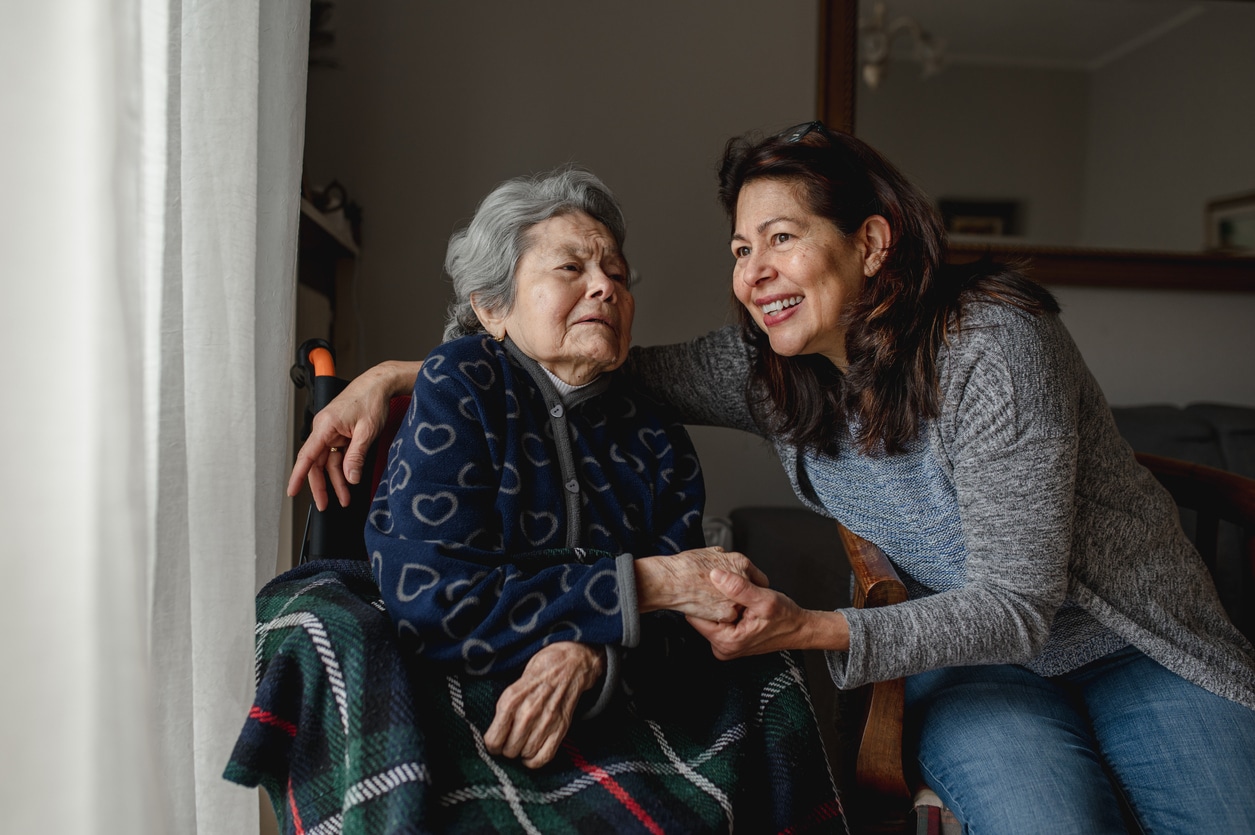As our parents age, they may need us more. In some cases, their needs are simple – some meal delivery or rides to appointments. In others, our parents may not be able to live alone or may require daily interaction. To prepare yourself for the future, it’s important to carefully consider a few key factors that every family caregiver faces.
Here are five considerations to get you started:
Explore the changing role of family caregivers.
1. What level of care does your loved one need?
Knowing the level and location of care your parent requires to be safe and healthy is the right place to start. Talk to your elder’s primary care provider and specialists about the optimal level of care required. This is the most effective way to determine what is the best way to take care of your aging parents. It can also help you with other family members who aren’t as aware of the situation. Perhaps your loved one needs someone to check in daily, help with meals or a medical alert system. Maybe they require more permanent or skilled care. Check out more tips for managing your parent’s healthcare.
2. What does your loved one want and need?
Before you assume a caregiving role, talk to your loved ones about what they want and need to age safely, independently and healthily. Talk about activities of daily living, like making their own meals, bathing without assistance, etc. Discuss how they feel about their emotional and physical health, too. You can also talk about ways for them to stay more independent, like adult care centers or a medical alert system. Factors their wants and needs into what their care team advises to help you both work out a plan that works for everyone. Discover why some elders refuse help.
3. How can others in the family help?
Don’t assume that you’ll have to go it alone. Family members (including kids, if you have them) nearby can help with visits and respite care, meal preparation and transportation. Relatives in other states can help, too, by providing moral and financial support or taking paid time off to stay with your parent while you take a break. Call a family meeting to discuss what you and your parent need and how each family member can contribute ahead of time. In the best situations, family members are eager to provide support. Unfortunately, there can be family disputes over elderly parents or struggles to engage others in helping. See how to manage family conflicts over caring for your older parents.
4. How’s your physical and emotional health?
Take a realistic look at how well you’re providing for your own needs. Many of us are already trying to do better at balancing work, family and rest. Adding elder care might make us wonder how do you care for your aging parent without losing yourself. Consult other caregivers to see how they do it. If you work, ask your employer how they handle time off for family responsibilities, discuss ways to accommodate your caregiving duties and develop strategies to remain successful in your job. Learn more ways to reduce the stress of being a family caregiver.
5. How are your and your parent’s finances?
Taking responsibility for older loved ones can put a strain on your finances because you may have to take unpaid time off, reduce your hours or quit your job, or pick up additional expenses. Talk to your banker (it’s free!) about your financial situation or schedule an appointment with your CPA (there may be a fee) to understand your current financial status and what you can accommodate. They can also help you understand ways to reduce the financial burden of caregiving, including tax breaks and other tactics. It’s also important to know as much as you can about your loved one’s finances. Find out how to talk to your parents about a personal financial plan.
Caring for an elder is an act of love and loyalty. Making sure you know the practical aspects of this generous decision helps you do what’s best for you and your family member.




